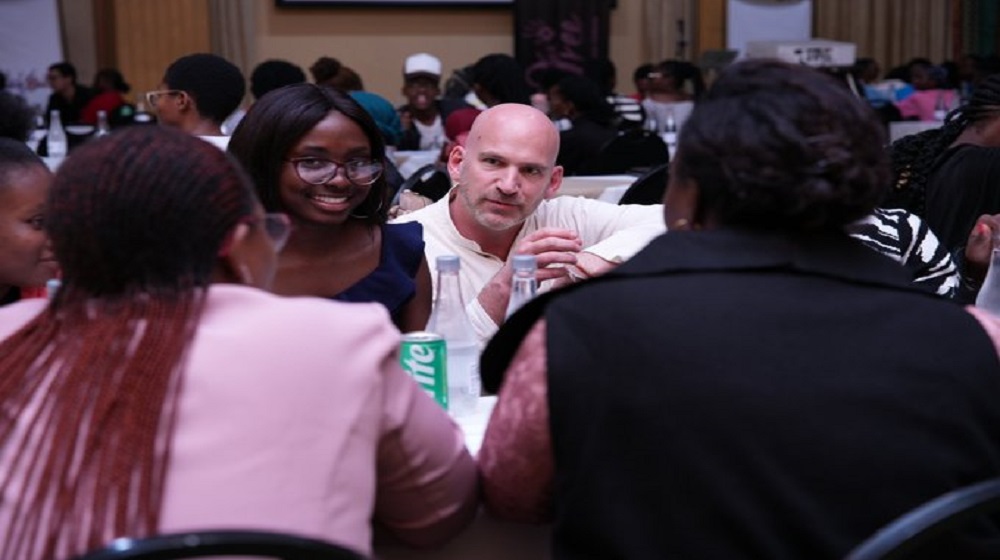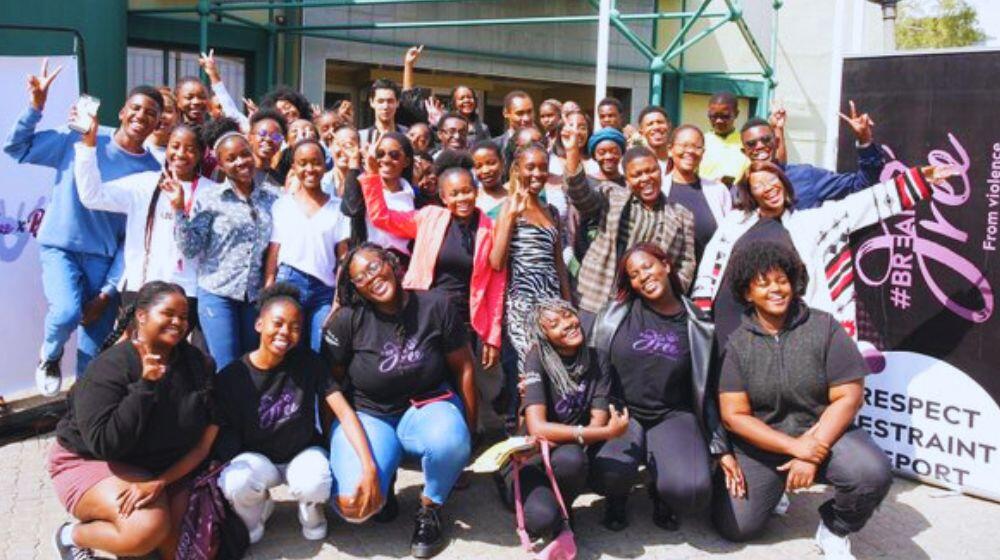
WINDHOEK, Namibia – Namibia faces significant challenges related to gender-based violence and femicide (GBV-F) and the need for improved mental health support. Research indicates that GBV and mental health are interconnected, with GBV having profound impacts on the mental well-being of survivors.
To stem the tide against this social ill, United Nations Population Fund (UNFPA) Namibia Country Office on 28 April 2023 supported the training of 110 service providers, including life skills teachers, student representative councils and youth-led groups in GBV-F. This was an educational and interactive program with an emphasis on strengthening abilities for preventing and responding to GBV-F cases as well as information and awareness of GBV-F.
The full-day training in Windhoek was part of the #BreakFree from Violence initiative of the First Lady of the Republic of Namibia.
Protection Specialist, Dr. Veronica Theron in the Office of the First Lady welcomed the trainees and explained that the workshop will give participants an understanding of the social and legal aspects of GBV-F in Namibia with the goal of enhancing service delivery.
She emphasised that Namibia is currently experiencing a crisis of all sorts of violence, including gender-based violence and violence against children. “If we want to change the issue, we need to do a better job and start educating the younger generation”, she said.
Mr. Ben Schernick, a Gender Specialist with Co-Create Change Consultancies, facilitated the training. He noted that GBV-F extends beyond domestic violence and is not just restricted to the home. “We live in a patriarchal society, where men have primary power and this affects both genders,” he said.
“Understanding rape and assault means understanding trauma. Trauma is moving across generations even if the traumatic events are never spoken about. The effects of trauma will still be felt by the next generations, that is why trauma healing is important.” he said.
The training was deemed by the participants to be comprehensive, practical, and essential for anyone working with GBV survivors. Participants are now more motivated and self-assured to confront GBV-F head-on as a result of learning the skills necessary to prevent and lessen violent incidents.
To cap off the training, Ms. Pefimbo Shipunda, a Senior Social Worker, provided essential insights on when and where to report GBV-F cases. "It’s vital to know your immediate contact person when referring cases for further action" she said as she concluded the impactful training.


